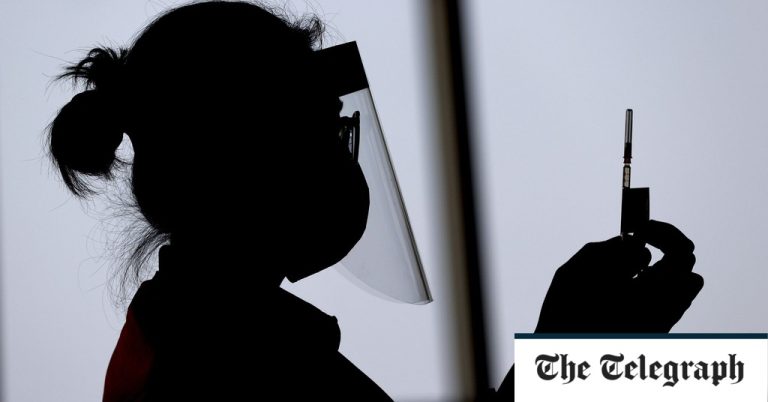“It makes extra sense in my head when somebody’s utterly antivax, particularly publish Covid. I believe that’s the place quite a lot of this antivax stuff has come from. I hadn’t realised that there’s nonetheless quite a lot of anti-MMR particular emotions locally.”
There has but to be a feared explosion in measles, however the affect of London’s patchy MMR protection is being felt: 128 cases of the disease had been detected in England within the first half of 2023, in contrast with 54 final 12 months, with 66 p.c of these detected within the capital, in accordance with UKHSA.
Though antivax sentiments are prone to be taking part in a big function in driving down uptake of the vaccine, it’s not the complete story. Cultural boundaries, linked to London’s ethnically numerous populations, and main issues with GP entry are additionally having an affect, specialists say.
These nuances are on show throughout Enfield, Camden and Hackney, the three worst-protected boroughs in London in opposition to MMR, the place protection charges stand at 64.8, 63.6 and 56.3 per cent, respectively.
Dr Sandra Husbands, the director of public well being for Metropolis and Hackney council, stated the borough’s low protection charge was “comprehensible and unsurprising” given it’s dwelling to many ethnic minority teams whose first language isn’t English.
Roughly 40 per cent of the varied inhabitants within the borough are black and minority ethnic teams – with the most important group, roughly 20 p.c, being black or black British.
“As a council, we’ve been working with our numerous communities to grasp boundaries to vaccinations and the way we are able to greatest deal with them,” stated Dr Husbands.
Lack of belief
The African Growth and Advocacy Centre (AFRIDAC) and the Group African Community (CAN) are each devoted to tackling this problem, serving to run vaccination clinics throughout the borough.
Oladapo Awosokanre, government director of AFRIDAC, stated {that a} lack of belief of medical methods amongst Hackney’s ethnic minorities was serving to gas vaccine hesitancy.
“They’ve an absence of belief within the content material of the vaccination and the way it can adversely have an effect on individuals, particularly younger individuals and infants,” he stated
“They fear whether or not it should have a harmful impact on them, or issues that there’s some form of an agenda to have a unfavorable impact on them, particularly ethnic minority youngsters.”
He added: “Some consider that these vaccinations aren’t essential or helpful if youngsters are born in third world international locations and never within the UK, they really feel in the event that they aren’t born right here, that they gained’t have points round measles, mumps or rubella.”
Janet Murungi, chair of CAN and a volunteer at her native GP surgical procedure, stated that for a lot of households the place English isn’t their first language, they don’t have a transparent understanding of why it’s essential for kids to be vaccinated.
“We’d like info in language and a culturally acceptable format to enhance entry to well being providers, particularly for the hard-to-reach communities,” she stated.
Issues with language boundaries hindering entry to healthcare is a matter that reverberates throughout the borough.
Pierre Palluet, Supervisor of the Vietnam, Laos & Cambodia centre in Hackney, stated an absence of public well being messaging round vaccinations was paving the best way for the unfold of disinformation among the many borough’s southeast Asian communities.
“This may embrace false claims concerning the components of the vaccines, their improvement course of, or their long-term results. Communication boundaries additionally contribute to restricted entry to correct and up-to-date details about the vaccines,” stated Mr Palluet.
To deal with this, Hackney council has been partnering with native volunteer providers to strengthen vaccine messaging and encourage take up of the MMR jab.
Earlier this 12 months, a number of pop-up vaccine clinics had been erected within the north east of Hackney to focus on the borough’s Charedi Orthodox Jews.
Inside this neighborhood, use of the web and entry to the information is proscribed attributable to each digital poverty and cultural precedent, with solely a really small variety of households permitting computer systems of their houses.
“Many individuals won’t be on-line and mainstream media simply fails to succeed in them,” stated Sarah Weiss, chair of the Interlink Basis for the Orthodox Jewish.
